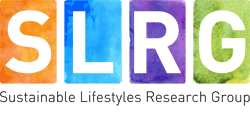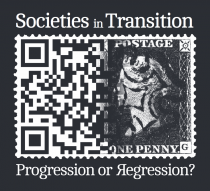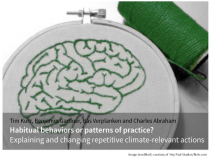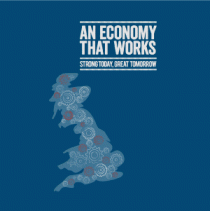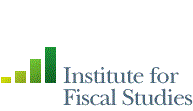- About
- Team
- Projects
- Children and the Environment
- ELiCiT (Exploring lifestyle changes in transition)
- Foundations for Sustainable Living
- HABITs
- Mapping Rebound Effects
- PASSAGE (Prosperity and Sustainability in the Green Economy)
- Policy Dialogue
- Price Responsiveness of Demand in Energy
- Resilience and Sustainable Lifestyles
- Sustainability Transitions in Food Systems
- Sustainable Living in Remote Rural Scotland
- Publications
- News
- Events
Publications
Found 8 results
Filters: First Letter Of Last Name is C [Clear All Filters]
. Unravelling the Threads: Discourses of Sustainability and Consumption in an Online Forum. Environmental Communication . 2012; 6/01:101-118.
. Living up to expectations: estimating direct and indirect rebound effects for UK households. 2015;1. wp_15-01_living_up_to_expectations.pdf (1.46 MB)
wp_15-01_living_up_to_expectations.pdf (1.46 MB)
. Turning lights into flights: Estimating direct and indirect rebound effects for UK households. Energy Policy. 2013:234–250. Available at: http://www.sciencedirect.com/science/article/pii/S0301421512010531.
. Who rebounds most? Estimating direct and indirect rebound effects for different UK socioeconomic groups. Ecological Economics. 2014;Volume 106:12–32. Available at: http://www.sciencedirect.com/science/article/pii/S0921800914002055.
. Forecasting UK household expenditure and associated GHG emissions: outlook to 2030. Ecological Economics. 2012; 84 :129–141.
. Who rebounds most? Estimating direct and indirect rebound effects for different UK socioeconomic groups. slrg-wp-01-14.pdf (3.36 MB)
slrg-wp-01-14.pdf (3.36 MB)
. Estimating direct and indirect rebound effects for UK households. 2012;01-12. slrg_working_paper_01-12.pdf (1.32 MB)
slrg_working_paper_01-12.pdf (1.32 MB)
. Forecasting UK household expenditure and associated GHG emissions: outlook to 2030. RESOLVE Working Paper Series . 2012;02-12. resolve_wp_02-12.pdf (530.06 KB)
resolve_wp_02-12.pdf (530.06 KB)
